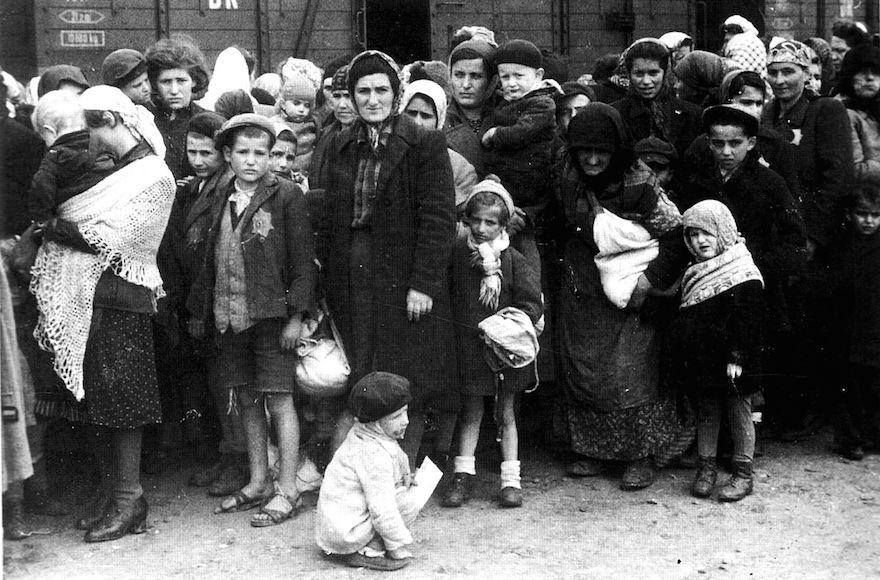The Soviet Union’s Supreme Soviet, or Parliament, yesterday recognized for the first time in many years that Jews were the principal victims of Nazi mass murders, both inside Russia and in other countries, according to dispatches from Moscow published here today.
For a long period of time, going back to the anti-Jewish purges launched by the late Joseph Stalin in 1948, and lasting throughout the post-Stalin era, including the more recent years under the dictatorship of Nikita Khrushchev, the Soviet Communist Party’s line had forbidden mention of Jews among the victims killed by the Nazis. Now, at the closing session of the Supreme Soviet, yesterday, Jews were mentioned explicitly in an address to its members.
Aleksander Y. Korneichuk, famous Ukrainian playwright, a member of the Supreme Soviet, and one of the most active USSR leaders of the so-called World Peace Council, had been obviously selected by the Communist leadership to bring up the subject of Jewish martyrdom, in response to protests abroad against Russia’s recently renewed persecutions of Jews in the Soviet Union.
Debating a Foreign Ministry report dealing with disarmament and the testing of atomic bombs, Mr. Korneichuk charged that the West is overlooking Germany’s wartime policy of mass murders. In that context, he mentioned that Jews were among Nazi Germany’s principal victims. He told Parliament that “Jews, Poles and other peoples’ had been slaughtered by the Nazis, and went on to mention not only concentration camps like Auschwitz and Buchenwald, but also Babi Yar, the Kiev gully where the Nazi murdered and tossed into a vast mass grave tens of thousands of Jewish victims.
Mr. Korneichuk lives in Kiev. His mention of Babi Yar, furthermore, was an obvious reaction to the poem entitled “Babi Yar,” written by one of Russia’s leading young writers, Yevgeny Yevtushenko, which raised storms of protests from some Russian writers of the old line last summer. In that poem, Yevtushenko had attacked latent anti-Semitism among the Russians, employing the unmarked mass-grave of Jews killed at Babi Yar as a symbol.
Observers here were of the belief that, by using Mr. Korneichuk for such a speech, the Soviet authorities have shown they are still sensitive to foreign criticisms against their anti-Jewish policies. Mr. Korneichuk, as a prominent member of the World Peace Council, is one of the Russians who must meet with Western intellectuals to formulate “peace” moves. He is believed to be among prominent Soviet figures who have become concerned by unfavorable publicity given to the Soviet Union in the Western press as a result of the execution of Jews who were among about two dozen persons condemned to death on currency speculation charges in recent months.
JTA has documented Jewish history in real-time for over a century. Keep our journalism strong by joining us in supporting independent, award-winning reporting.
The Archive of the Jewish Telegraphic Agency includes articles published from 1923 to 2008. Archive stories reflect the journalistic standards and practices of the time they were published.




